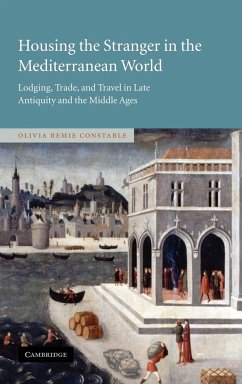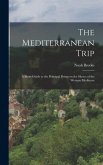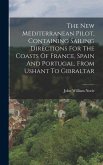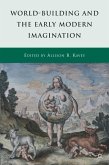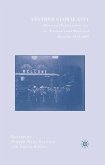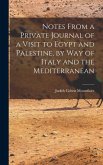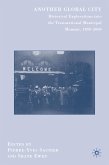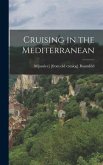Short description/annotation
A study of the evolution of hostelries for travellers throughout the medieval Mediterranean world.
Main description
The Greek pandocheion, Arabic funduq, and Latin fundicum (fondaco) were ubiquitous in the Mediterranean sphere for nearly two millennia. These institutions were not only hostelries for traders and travelers, but also taverns, markets, warehouses, and sites for commercial taxation and regulation. In this highly original study, Professor Constable traces the complex evolution of this family of institutions from the pandocheion in Late Antiquity, to the appearance of the funduq throughout the Muslim Mediterranean following the rise of Islam. By the twelfth century, with the arrival of European merchants in Islamic markets, the funduq evolved into the fondaco. These merchant colonies facilitated trade and travel between Muslim and Christian regions. Before long, fondacos also appeared in southern European cities. This study of the diffusion of this institutional family demonstrates common economic interests and cross-cultural communications across the medieval Mediterranean world, and provides a striking contribution to our understanding of this region.
Table of contents:
Introduction; 1. 'Accepting all comers': a cross-cultural institution in late antiquity; 2. The transition from Byzantium to the Dâr al-Islâm; 3. Commerce, charity, community, and the Funduq; 4. Colonies before colonialism: western trade and the evolution of the Fondaco; 5. Conquest and commercial space: the case of Iberia; 6. Fondacos in Sicily, South Italy, and the crusader states; 7. Changing patterns of Muslim commercial space in the later middle ages; 8. Christian commerce and the solidification of the Fondaco system; 9. The Fondaco in Mediterranean Europe; Conclusion.
Hinweis: Dieser Artikel kann nur an eine deutsche Lieferadresse ausgeliefert werden.
A study of the evolution of hostelries for travellers throughout the medieval Mediterranean world.
Main description
The Greek pandocheion, Arabic funduq, and Latin fundicum (fondaco) were ubiquitous in the Mediterranean sphere for nearly two millennia. These institutions were not only hostelries for traders and travelers, but also taverns, markets, warehouses, and sites for commercial taxation and regulation. In this highly original study, Professor Constable traces the complex evolution of this family of institutions from the pandocheion in Late Antiquity, to the appearance of the funduq throughout the Muslim Mediterranean following the rise of Islam. By the twelfth century, with the arrival of European merchants in Islamic markets, the funduq evolved into the fondaco. These merchant colonies facilitated trade and travel between Muslim and Christian regions. Before long, fondacos also appeared in southern European cities. This study of the diffusion of this institutional family demonstrates common economic interests and cross-cultural communications across the medieval Mediterranean world, and provides a striking contribution to our understanding of this region.
Table of contents:
Introduction; 1. 'Accepting all comers': a cross-cultural institution in late antiquity; 2. The transition from Byzantium to the Dâr al-Islâm; 3. Commerce, charity, community, and the Funduq; 4. Colonies before colonialism: western trade and the evolution of the Fondaco; 5. Conquest and commercial space: the case of Iberia; 6. Fondacos in Sicily, South Italy, and the crusader states; 7. Changing patterns of Muslim commercial space in the later middle ages; 8. Christian commerce and the solidification of the Fondaco system; 9. The Fondaco in Mediterranean Europe; Conclusion.
Hinweis: Dieser Artikel kann nur an eine deutsche Lieferadresse ausgeliefert werden.

